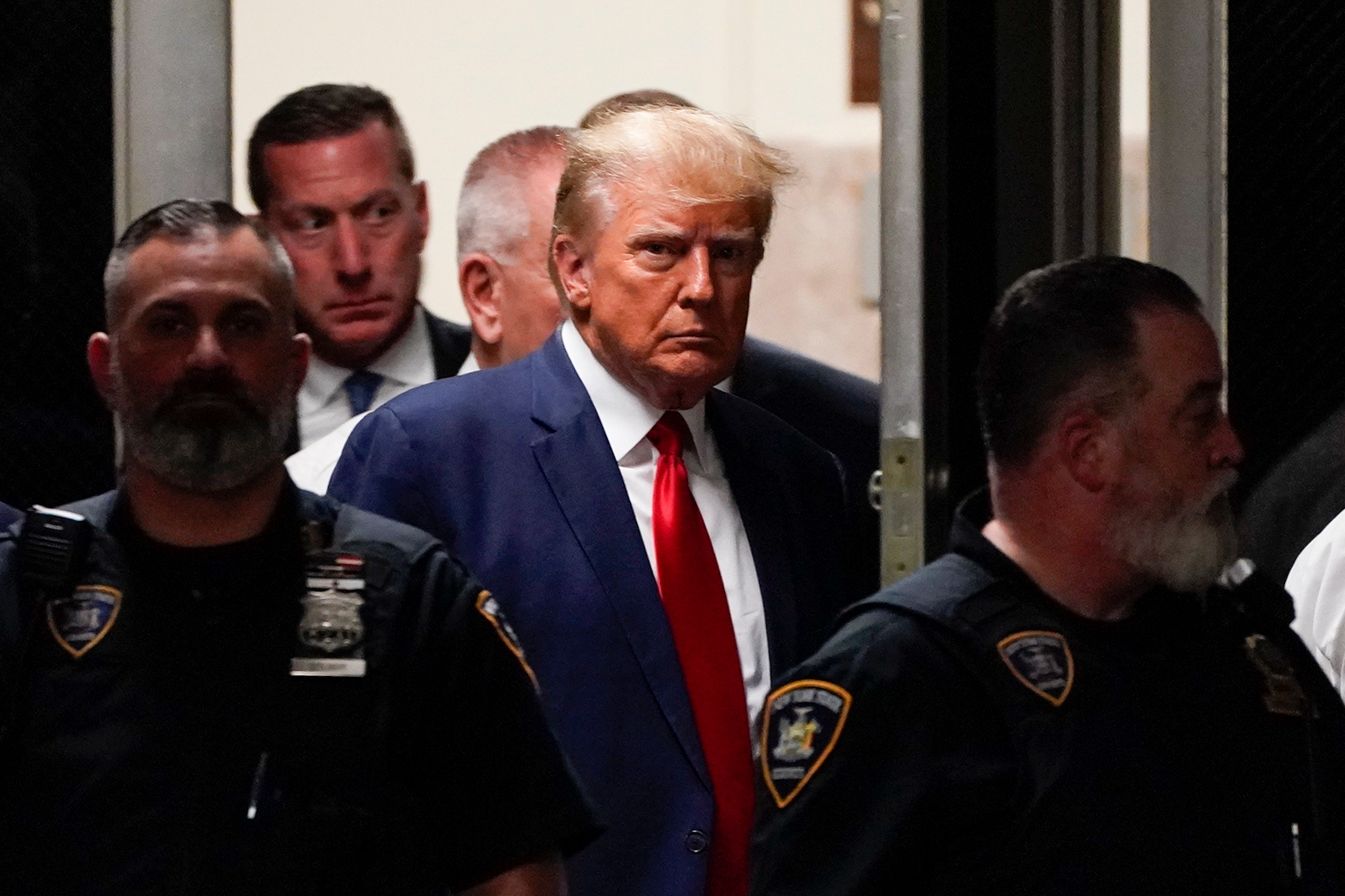Georgia judge dismisses six charges in Trump election interference case

A Georgia judge Wednesday dismissed some criminal charges against former President Donald Trump. (Jabin Botsford/The Washington Post)
The judge overseeing the election interference case against former president Donald Trump and several of his allies dismissed six counts in the sweeping 41-count criminal racketeering indictment, ruling that the charges lacked specific detail, but declined to dismiss the case.
In a nine-page order issued Wednesday morning, Fulton County Superior Court Judge Scott McAfee dismissed six charges alleging that Trump and five of his co-defendants had illegally urged elected officials in Georgia to violate their oaths of office in their attempts to overturn Trump’s 2020 election loss in the state.
“As written, these six counts contain all the essential elements of the crimes but fail to allege sufficient detail regarding the nature of their commission, i.e., the underlying felony solicited,” McAfee wrote.
The judge added: “This does not mean the entire indictment is dismissed.” McAfee pointedly declined a defense request challenging the overt acts tied to charges - meaning they are still part of the overall indictment. Prosecutors can still present evidence related to the dropped charges as they argue that Trump and his allies criminally conspired to try to overturn the election.
The six counts—which also implicate former New York mayor Rudy Giuliani, former White House chief of staff Mark Meadows and former Trump campaign attorneys Robert Cheeley, John Eastman and Ray Smith—were related to an alleged pressure campaign against elected officials, including Georgia Secretary of State Brad Raffensperger (R), members of the Georgia Senate and then-Georgia House Speaker David Ralston (R), to undo Trump’s loss in the state.
Among the six charges dismissed are two counts related to the phone call Trump and Meadows made to Raffensperger on Jan. 2, 2021, in which Trump urged his fellow Republican to “find” enough votes to overturn his defeat in Georgia—a recorded conversation that sparked the investigation into Trump and his allies when it was made public.
McAfee dismissed a third charge against Trump alleging that he again pressed Raffensperger to break the law when he sent him a letter in September 2021 calling on the secretary of state to overturn the election “and announce the true winner.”
Steve Sadow, an attorney for Trump, said McAfee had “made the correct legal decision.”
“The prosecution failed to make specific allegations of any alleged wrongdoing on those counts,” Sadow said in a statement. “The entire prosecution of President Trump is political, constitutes election interference, and should be dismissed.”
The judge’s decision means Meadows, who has been seeking to move his case to federal court, now faces only a single racketeering charge in the case. James Durham, a lawyer for Meadows, did not immediately respond to a request for comment.
But the legal fight over the charges may not be over. McAfee’s order granted the state a six-month window to “resubmit the case to a grand jury” or to seek an appeal of his order.
A spokesman for Fulton County District Attorney Fani T. Willis (D), whose office brought the indictment, declined to comment.
The unexpected ruling comes as McAfee is considering motions to disqualify Willis and her office from the election case amid claims that she improperly hired a “boyfriend” to lead the investigation and then took “vacations across the world” with him that he paid for. Willis and Nathan Wade, the special prosecutor she appointed to the case, have vigorously denied any wrongdoing.
McAfee has said he will announce whether Willis should be removed by Friday, but the two-month drama has already been a blow to Willis’s case, with the embarrassing allegations fueling questions about her character and leadership. If McAfee allows her to keep the case, her push to go to trial in August is already sidetracked—with Wednesday’s ruling probably adding even more delays.



